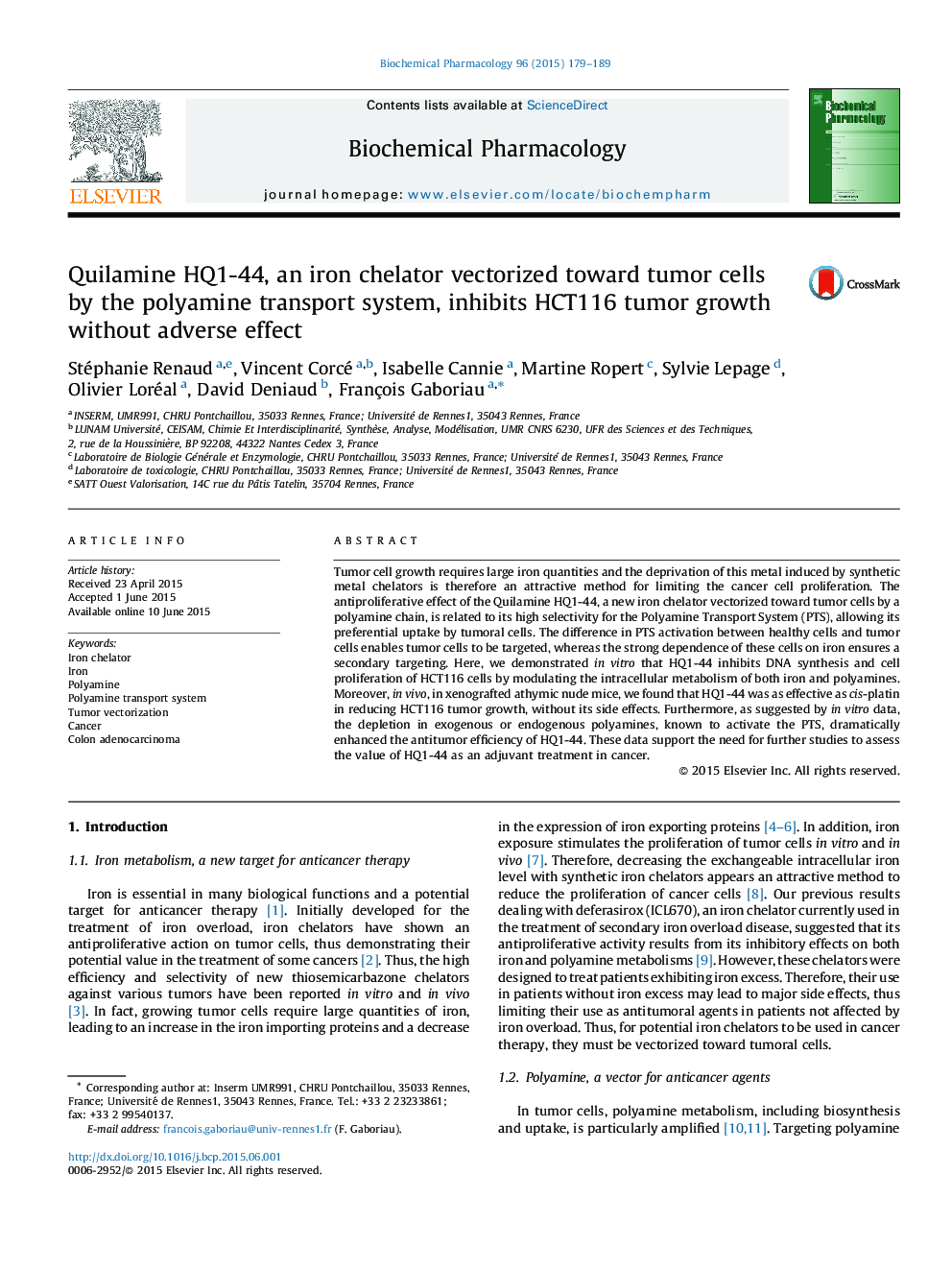| Article ID | Journal | Published Year | Pages | File Type |
|---|---|---|---|---|
| 5823213 | Biochemical Pharmacology | 2015 | 11 Pages |
Tumor cell growth requires large iron quantities and the deprivation of this metal induced by synthetic metal chelators is therefore an attractive method for limiting the cancer cell proliferation. The antiproliferative effect of the Quilamine HQ1-44, a new iron chelator vectorized toward tumor cells by a polyamine chain, is related to its high selectivity for the Polyamine Transport System (PTS), allowing its preferential uptake by tumoral cells. The difference in PTS activation between healthy cells and tumor cells enables tumor cells to be targeted, whereas the strong dependence of these cells on iron ensures a secondary targeting. Here, we demonstrated in vitro that HQ1-44 inhibits DNA synthesis and cell proliferation of HCT116 cells by modulating the intracellular metabolism of both iron and polyamines. Moreover, in vivo, in xenografted athymic nude mice, we found that HQ1-44 was as effective as cis-platin in reducing HCT116 tumor growth, without its side effects. Furthermore, as suggested by in vitro data, the depletion in exogenous or endogenous polyamines, known to activate the PTS, dramatically enhanced the antitumor efficiency of HQ1-44. These data support the need for further studies to assess the value of HQ1-44 as an adjuvant treatment in cancer.
Graphical abstractDownload full-size image
